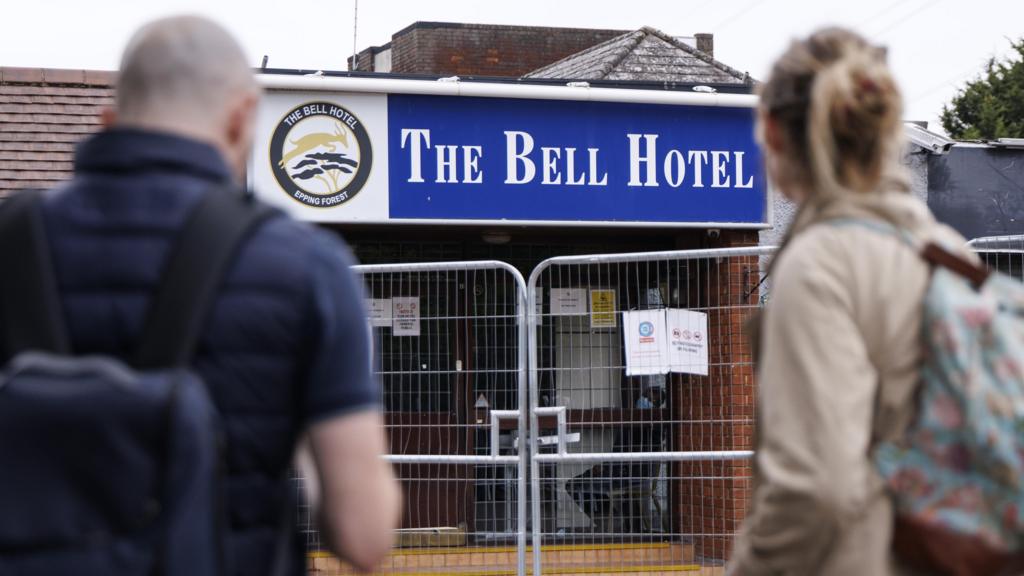UK Court Allows Asylum Seekers to Remain in Hotel, Prompting Political Backlash

The UK government won a legal battle on Friday that allows asylum seekers to remain housed in a hotel in Epping, Essex, despite recent criminal charges against a resident. The decision could intensify political friction and fuel public demonstrations.
Immigration has become the dominant political issue in the UK, overtaking concerns about the economy. This year alone, more than 28,000 people have arrived across the Channel in small boats, with asylum claims reaching record highs.
The Bell Hotel in Epping became the center of national attention after an Ethiopian asylum seeker was charged with sexual offences. In response, the High Court had temporarily blocked further use of the hotel to house migrants, citing planning regulations. But on Friday, the Court of Appeal overturned that ruling, allowing the asylum seekers to stay.
Although this court decision avoids a disruptive closure of migrant hotels, it places Prime Minister Keir Starmer’s government under fire. His administration is now facing accusations of failing to prioritise local concerns.
“Keir Starmer has shown that he puts the rights of illegal immigrants above the rights of British people who just want to feel safe in their towns and communities,” said Kemi Badenoch, leader of the opposition Conservative Party.
While the government’s legal team argued that upholding the injunction could inspire a wave of similar protests aimed at forcing hotel closures, the underlying issue reflects a deeper lack of clarity in Starmer’s immigration policy. Critics say his government appears reactive rather than strategic in its approach.
Judge David Bean, one of the three appeal court judges, noted that accepting unlawful protests as grounds for legal action could encourage further disorder, saying it risked “encouraging further lawlessness.”
Angela Eagle, minister for asylum, defended the appeal. “We inherited a chaotic asylum accommodation system costing billions. We appealed this judgment so hotels like the Bell can be exited in a controlled and orderly way that avoids the chaos of recent years that saw 400 hotels open at a cost of 9 million pounds a day.”
Currently, over 32,000 asylum seekers are staying in more than 200 hotels across the UK. Though the government has promised to shut them all down before the next general election, expected by 2029, it remains legally bound to provide housing under the European Convention on Human Rights.
Nigel Farage, leader of the Reform UK party, has proposed repealing human rights laws to allow for mass deportations. While his plan has been criticised by legal experts and his party holds just four seats in Parliament, it has attracted widespread media attention.
“The government has used ECHR against the people of Epping,” Farage said on X. “Illegal migrants have more rights than the British people under Starmer.”
Advocacy groups supporting migrants say right-wing politicians and activists are exploiting the issue for political gain. Nonetheless, public anxiety is growing, especially in communities where serious crimes involving asylum seekers have been reported.
The Ethiopian man at the centre of the Epping case is currently on trial for allegedly assaulting a teenage girl and another woman. He denies the charges. Separately, two Afghan migrants are also standing trial for allegedly raping a 12-year-old girl in central England.
Protests in Epping have continued and more demonstrations are expected over the weekend, highlighting the political pressure now facing Starmer’s government—a government still struggling to balance legal obligations with the growing unease of local communities.
